The real work being done by the Marine View “virtual” team in Guatemala this week is not especially fun. Anyone who has gone on these stove mission trips in the past knows this. You often work in hot, cramped conditions, with sweat dripping off your body while you scratch in the dirt to ensure the stove spot is level before bolting the stove pieces together.
You then sift sand behind the stove bricks for better heat retention and protection from the metal, sometimes having to first shave the masonry bricks with a file for fit, with brick dust flying all around. And you may have to cut a sheet metal stove pipe, or put yourself in a precarious position on a ladder while you wire the pipe to the roof. Often a hole needs to be cut into the side of the house, with a battery-powered reciprocating saw if its wood, or with a chisel and hammer if the wall is of concrete block or stucco construction. If the saw batteries run out, as they did at one home today, a local may just step in with a chainsaw to make the wall cut. Our team again had a good day, installing a collective 38 stoves (and water filters). So with the 37 installed on Monday, that’s just 40 more to go! (The video at the bottom of this post includes a fast-motion assembly of a demonstration stove installed last week).
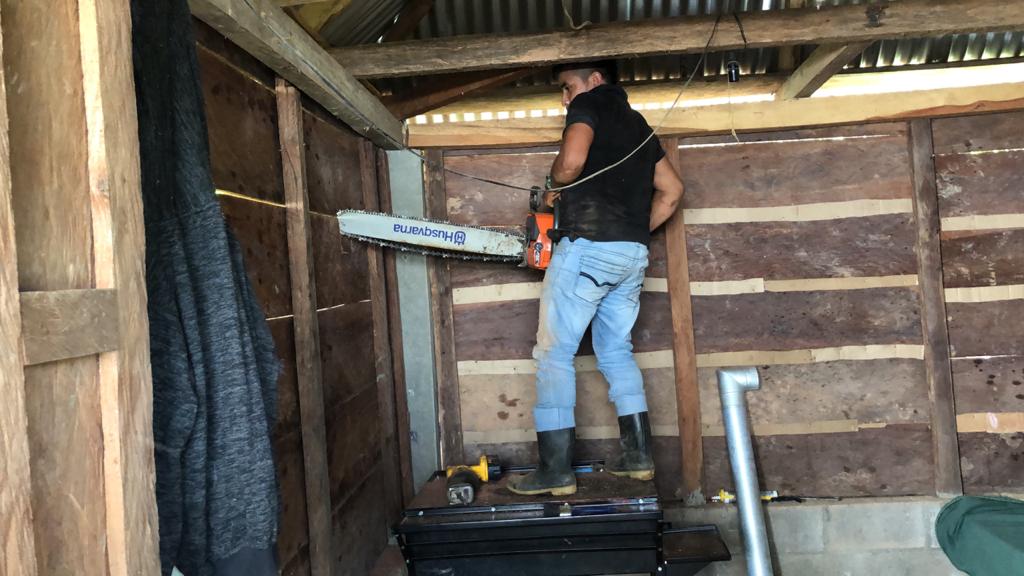
Even under these challenging conditions I wish I was there. The rewards are so great that any thoughts of unpleasantness kind of melt with the heat. The photos that Marco sent tonight from the village of Esperancita Yulmacap reminded me of why we go. The children are everywhere, playing and looking at us with a wide-eyed shyness as we work. Young mothers with nursing babies stroll throughout. Villagers from the very young to the very old greet us as we walk the trails and into their homes, sometimes offering plantains, fruit juice or even soda as a humble gesture of their gratefulness. While we are helping them, they are helping us to gain a greater appreciation for a different culture and lifestyle so different and unfamiliar to what we have by living in the United States. I miss all of this, as I’m sure do those who were all set to go to Guatemala this year before the pandemic struck.
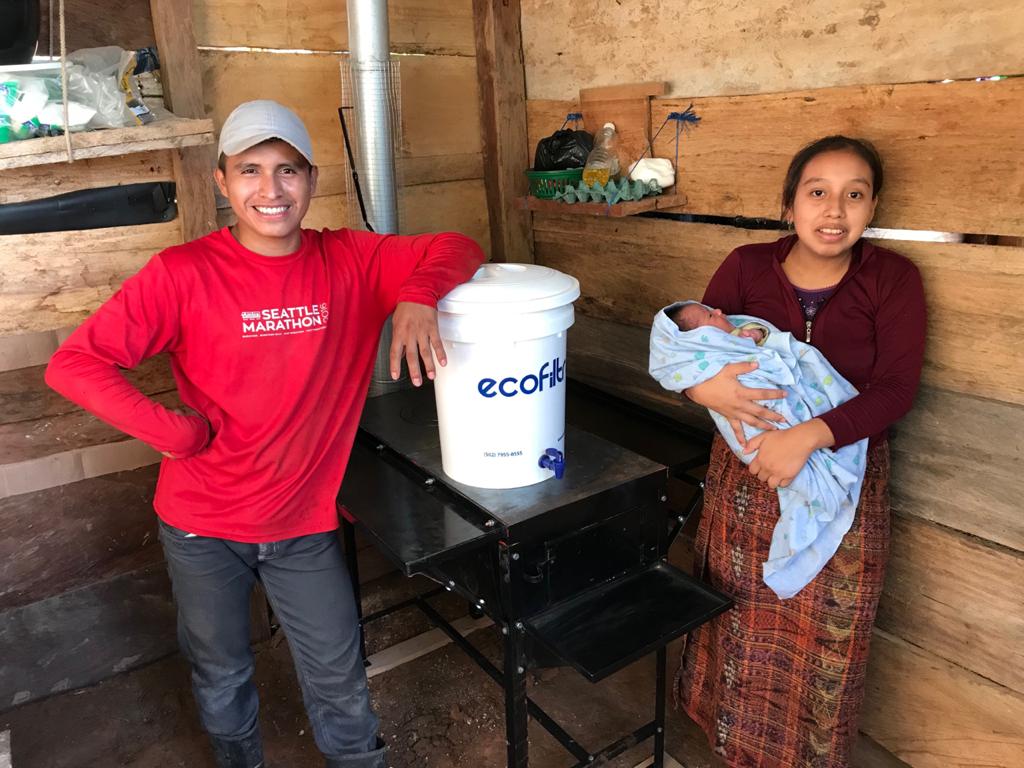
While we are mere visitors for only a few days, for some of the villagers it is not their first experience interacting with U.S. citizens. Often it is a first to have foreigners (or dare we use Gringo, their common word for us?) in their village. In this district tourists are rare, and even workers and volunteers from other U.S.-based humanitarian organizations seldom make their way to this distant part of the country. This is a land that is ravished with poverty, so much so that in economic desperation they will flee, at all costs, to try to eek out a better life for themselves and their families.
Wilson’s Story
Marco and his team shared a story of one of those villagers, a man named Alvaro Wilson Merida Lopez.

In 2008, when Wilson was 25 years old, he decided to make a run to the U.S. The lack of opportunities and the poverty in his village made Wilson and his wife, Wendy Muñoz, decide that he would go to the U.S. and send money home so they could build their house and purchase the things they needed. In his village Wilson was only able to make the equivalent of $3.35 a day.
Wilson made it to New York state, where he found work on a dairy farm. He spent two years on the farm, where he made $120 a day, or a 3482% increase in wages.
Wilson spent $5,000.00 of his earnings to pay the persons who took him to the U.S., known colloquially as coyotes. He was able to pay that amount in a couple of months and then he was able to send money home.
One of the experiences that Wilson remembers the most is when he had to travel with 200 people in a semi-truck for 12 hours. They didn’t even have water to drink. The other thing Wilson remembers is walking in the desert for four nights.
The sadness of missing his family incited Wilson to return to his village in 2010. But six years later he went back. He heard it was easier to enter the U.S. if people had children with them. By 2016 his first daughter, Bapsi Merida, was already 13.
For Wendy, her mother, it was an especially tough decision as Bapsi was just a teen. Finally, Wilson and Bapsi left Guatemala through Mexico for the U.S. It was true, it was easy for Wilson to get into the United States because he was entering with Bapsi.
This time they went to Atlanta and Alabama. While Wilson was going to work painting houses and buildings, Bapsi attended school, completing both the sixth and seventh grades. In Guatemala most village schools only run through the sixth grade, and only under special circumstances do these children advance to grades beyond.
On the way to the U.S., Bapsi remembers watching people close to death. They would faint as they were in a small truck with 40 people with no water and food. Wilson and Bapsi also suffered from hunger and thirst.
Bapsi also remembers being mistreated in school by two of her classmates. They they would accuse Bapsi of taking their friends away from them. The teachers, on the other hand, were pleasant and treated her well. Yet she was missing her family back home.
While in school she had the opportunity to do field trips and was able to see the zoo, museums and other local attractions. Wilson was worried because he knew that there were classmates that were making her life hard. Later these two classmates because Bapsi’s best friends.
This time they spend three years in the U.S. When Wilson decided to come back with Bapsi to Guatemala they didn’t tell their family. They came by bus and informed his wife they were in their way home and already were close to Mexico City.
According to Bapsi, going to the U.S. illegally is something she will not attempt to do again, only if she is able to obtain a visa to travel safely. Yet for her family, in the end, the risk paid off as they now live in a large home with many amenities.
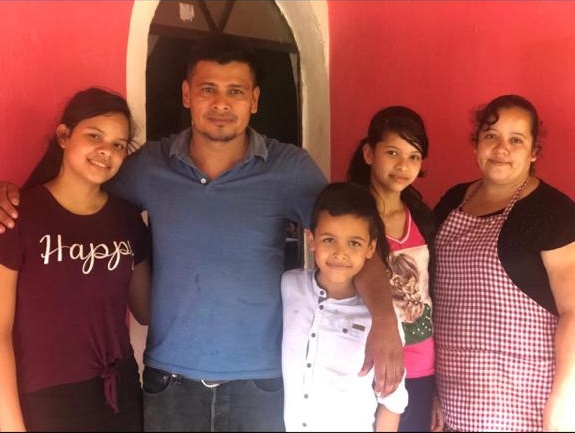
From the village of Esperancita there are 40 people who have gone to the U.S. Ten 10 are back, but 30 people still live here, all trying to have a better life for themselves and for their families. What our teams do in Guatemala is to make their lives in the village a little better by helping them toward a more locally sustainable life by being able to spend less time gathering wood. By reducing wood consumption it helps the environment. And by sending the smoke outside through a pipe it means a healthier life for both children and adults.
Here are some of the photos Marco sent from Tuesday’s stove and water filter installations, with the video at the bottom.
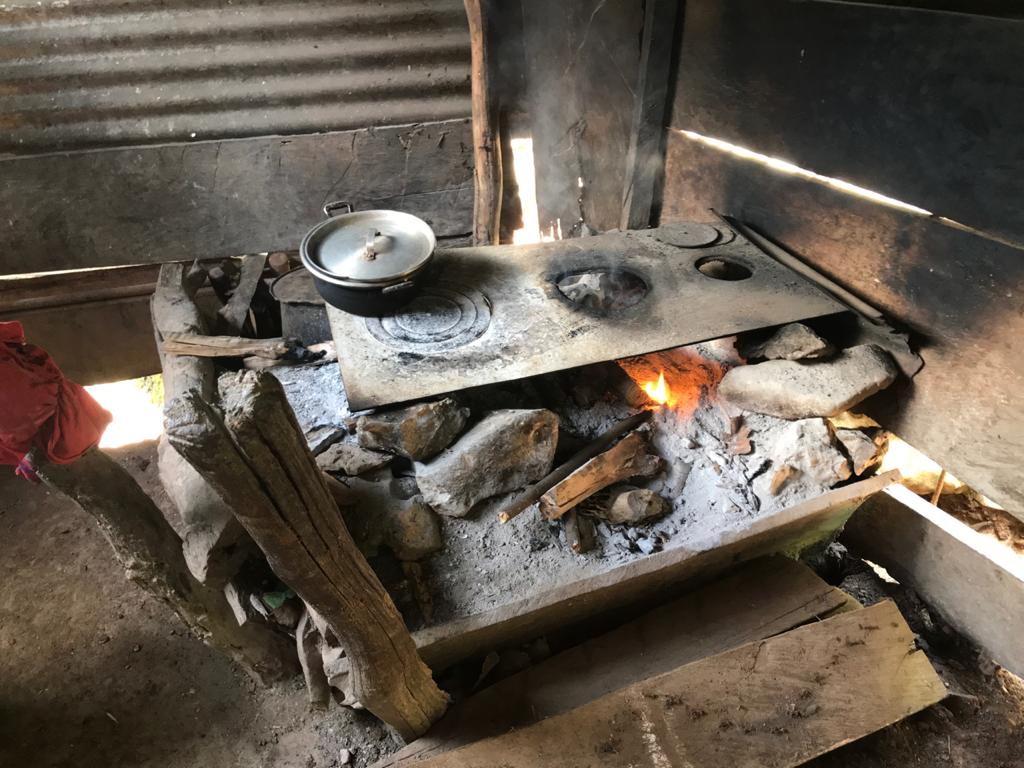
The in-home cooking arrangement before 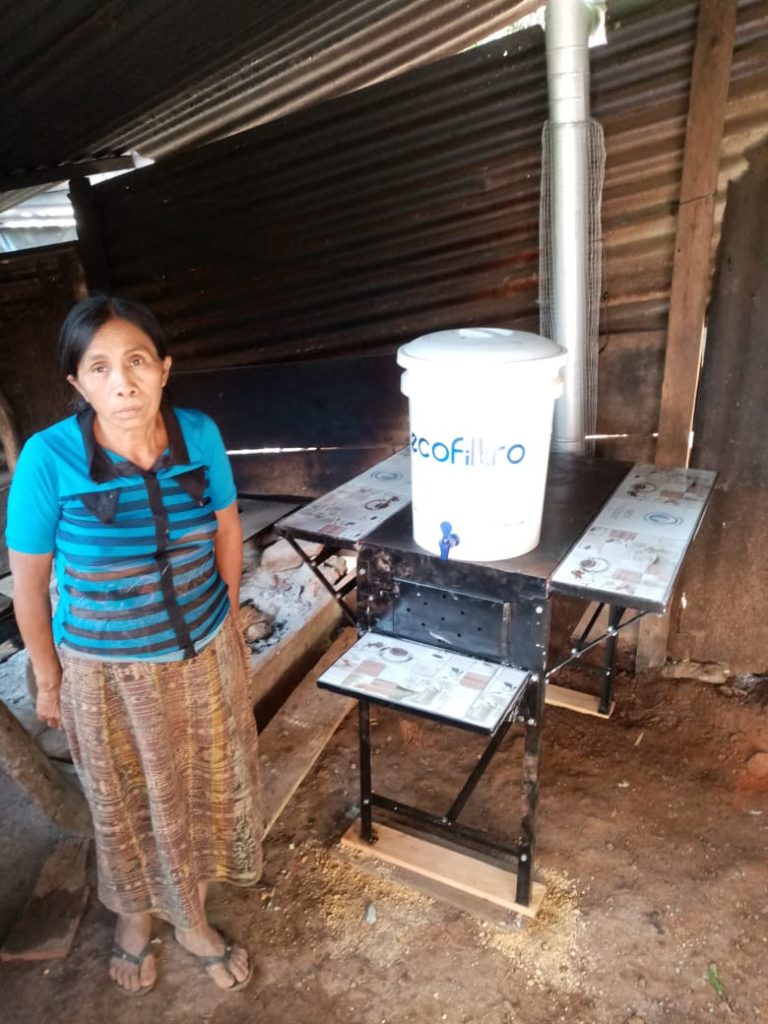
And after!
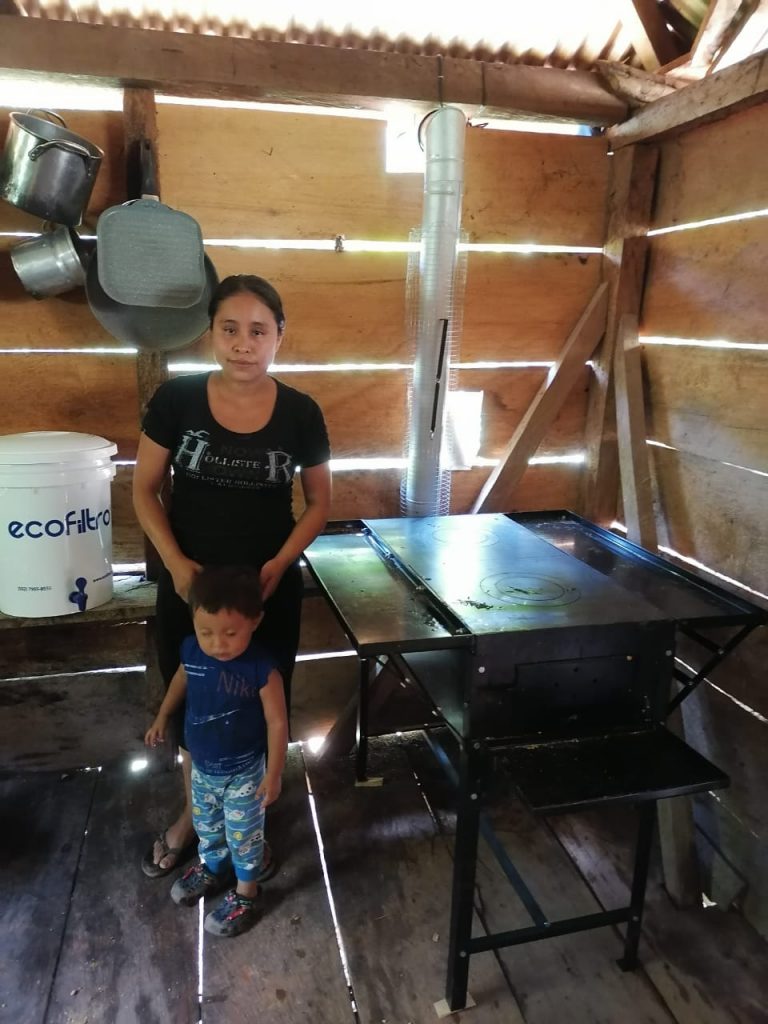
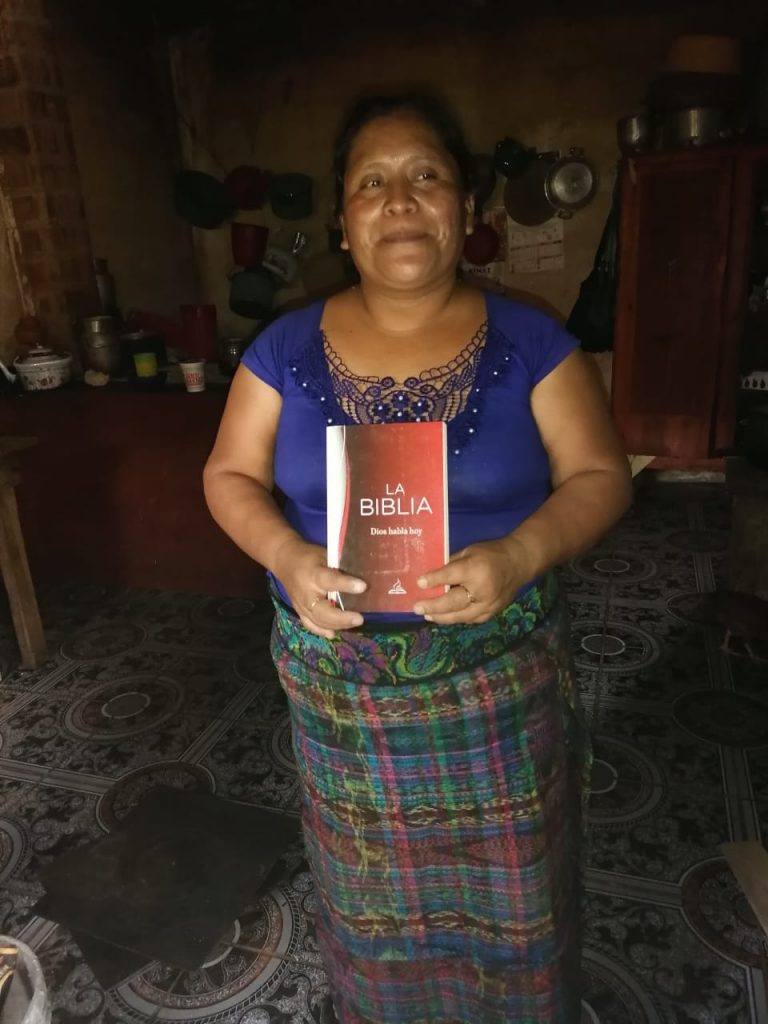

Marco and crew. I am thankful for you all and praying for a successful work with the villagers. There is much good that you do. I am praying for many blessings for all. I am thankful for one experience with you at Rio Azul in 2019. Thank you for that gift. Fred Wilkins
Great job!
GOD bless you all